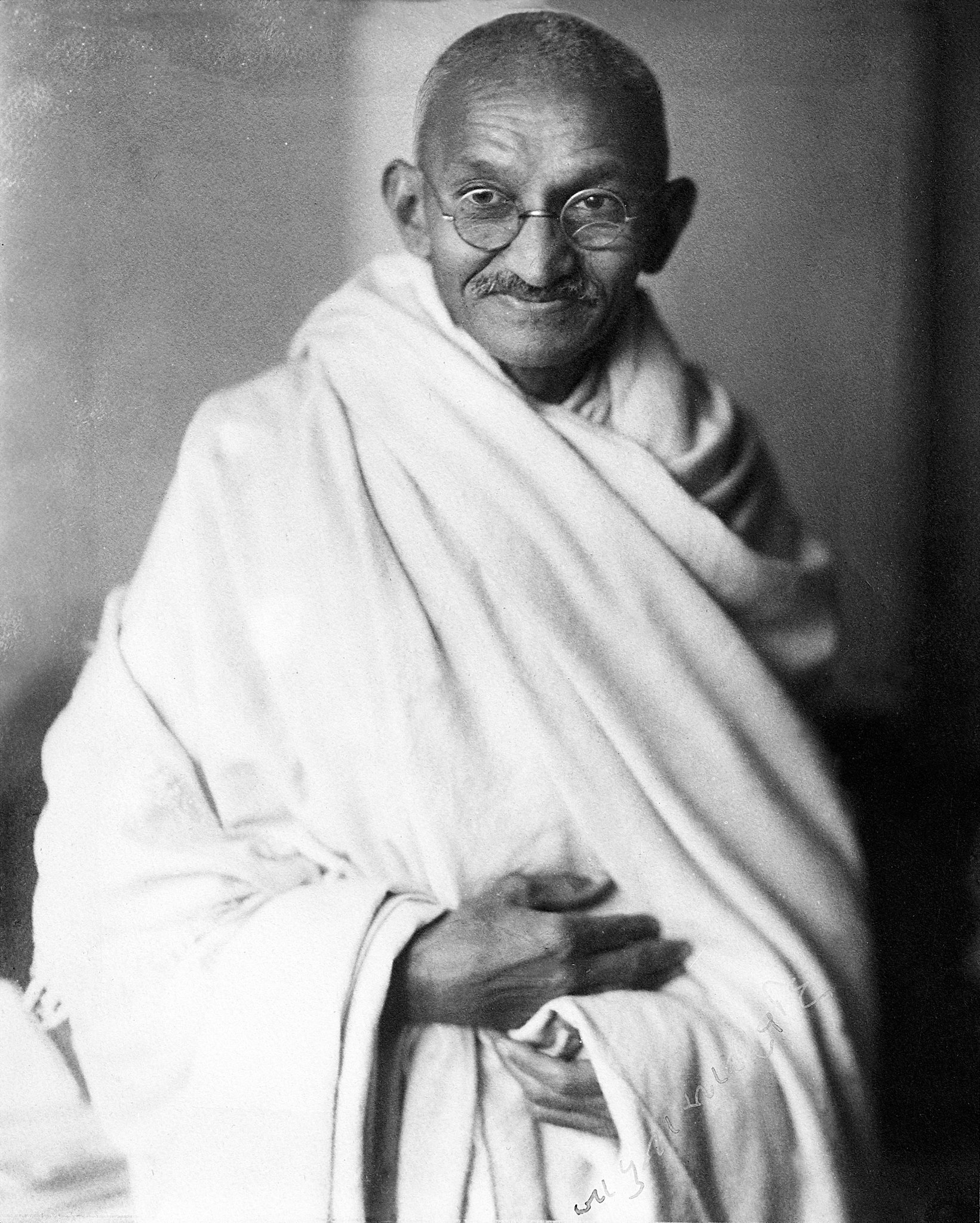More languages
More actions
Mahātmā Mohandas Gandhi મોહનદાસ ગાંધી | |
|---|---|
 | |
| Born | 2 October 1869 Porbandar, British Raj |
| Died | 30 January 1948 New Delhi, India |
| Cause of death | Assassination |
| Nationality | Gujarat |
| Political party | Indian National Congress |
Mohandas Karamchand Gandhi (2 October 1869 – 30 January 1948), also known as Mahatma Gandhi, was an Indian anti-colonial activist and bourgeois revolutionary. He was an idealist and led the peasantry to support the bourgeois-led national liberation movement against British occupation. His non-violent tactics opposed imperialism while also discouraging a mass revolution. The bourgeoisie turned against him after independence once his values began to hinder their rule, leading to his assassination.[1]
Early life
Gandhi was born in a family of servants to the feudal rulers of Porbandar State (modern-day Gujarat).[1]
Independence movement
During the First World War, Gandhi recruited soldiers for the British Army because he believed the sacrifice of Indian soldiers would strengthen the independence movement in India.[1]
In 1921, he denounced the British government and called for a boycott of the British legislature. He opposed involvement in the Second World War.[1]
Post-independence
In 1947, Gandhi proposed transforming the Indian National Congress into a non-political organization that would only serve the people. The Congress rejected this proposal.[1]
See also
References
- ↑ 1.0 1.1 1.2 1.3 1.4 E. M. S. Namboodiripad (1958). The Meaning of Gandhism.
